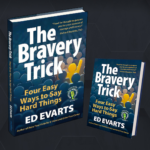
by Ed Evarts | May 2, 2019 | Interacting, Participation, Visibility and Value
Industry association memberships are work-related An important mindset for you, your boss, and your organization is that your association membership is work-related. This is not an extracurricular activity. The benefits to you and your organization are compelling and...

by Ed Evarts | Apr 30, 2019 | Interacting, Participation, Visibility and Value
As last we mentioned, you need to make sure that you have your boss’s buy in for your spending time attending industry events. Here are a few more things you can do to help ensure you have her full support: Plan for your absence Once you are committed to attend an...

by Ed Evarts | Apr 25, 2019 | Interacting, Participation, Visibility and Value
You need to make sure that you have your boss’s buy in on your spending time attending industry events, otherwise her lack of support can be a significant hurdle. There are several things you can do to help make sure that her mindset is only a hurdle, rather...

by Ed Evarts | Apr 23, 2019 | Interacting, Participation, Visibility and Value
Balancing work and industry events Balancing work and industry events in your busy organization is not easy. Engaging with industry associations can become harder if your boss doesn’t support the concept. Your boss may feel that industry association meetings are...

by Ed Evarts | Jan 10, 2019 | Responsiveness, Visibility and Value
Not all who are unresponsive can blame the overwhelming amount of incoming emails and phone calls as the cause of their behavior. Many of us tend to assume that other people’s low responsiveness is due to workload when, in reality, they may not possess a natural...











